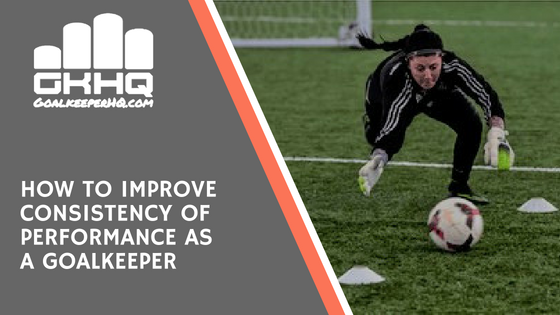The new season provides for many the opportunity to reflect, refuel, reengage, restructure and refocus for future performance growth.
Achievements and failures are in the past – new journeys, opportunities, obstacles, and challenges lie ahead. The best athletes and coaches prepare effectively for all these challenges.
The Mind is the Athlete
Every sporting decision we make—every reaction, every choice, and every movement is based on a fine motor skill using not only the muscles of the body but predetermined by the central nervous system (brain and spinal cord).
First, you need to understand that there will be good days and bad days on the field. You cannot play at the same exact level every day. Even pro players have ups and downs.
For goalkeeping, one success factor that I’ve observed, which is present across all of the different levels, is consistency. It is what they do each and every day over and over again that allows them to achieve their results. A goalkeeper will always be remembered by the mistakes they make. Therefore it is important to increase the consistency of good performances.
Wolff’s Law states that the body conforms and adapts to the intensities and directions it is habitually subjected to. The key word is habitually. It’s not enough to do a single intense workout then expect to be faster, fitter, stronger. It’s the workouts that you habitually do every week for many weeks that make your body faster, fitter, stronger. Hence the reason for this 8 week plan.
The good news is consistency is a piece of the puzzle that we can all solve. Consistency is not a skill or talent—you have direct control over it. Here are eight habits that will increase your consistency and ultimately your success on game day.
- Pregame routine – Arrive early to the field to settle into a routine. Take care of all the details of checking and organizing your equipment.
- Warm-Up – Warm up the same way for every game. This will signal your body and mind of your readiness to play. This is not the time to try anything new. Stick to your tried-atrnd-true method for preparing yourself.
- Game Plan – Know the game plan from the coach with regards to distribution methods, speed of play, and any adaptations due to weather conditions.
- Mental Routine – Have a mental routine to help you visualize good saves.
- Commit – Once you have decided on technical method for saving, commit to it.
- Trust – Trust your training, your abilities, and most importantly, your capability to make the correct save or decision.
- Emotional Control – If a mistake happens, you may not like it… but get over it. One bad decision is not an indication that you are playing badly. You are only as good as your next save. Riding the emotional roller coaster is a consistency-killer.
- Now is the Time – During play is not the time to evaluate your progress, analyze your technique, or project the final result. Stick to your plan… What do you need to do at this moment?

Leave a Reply